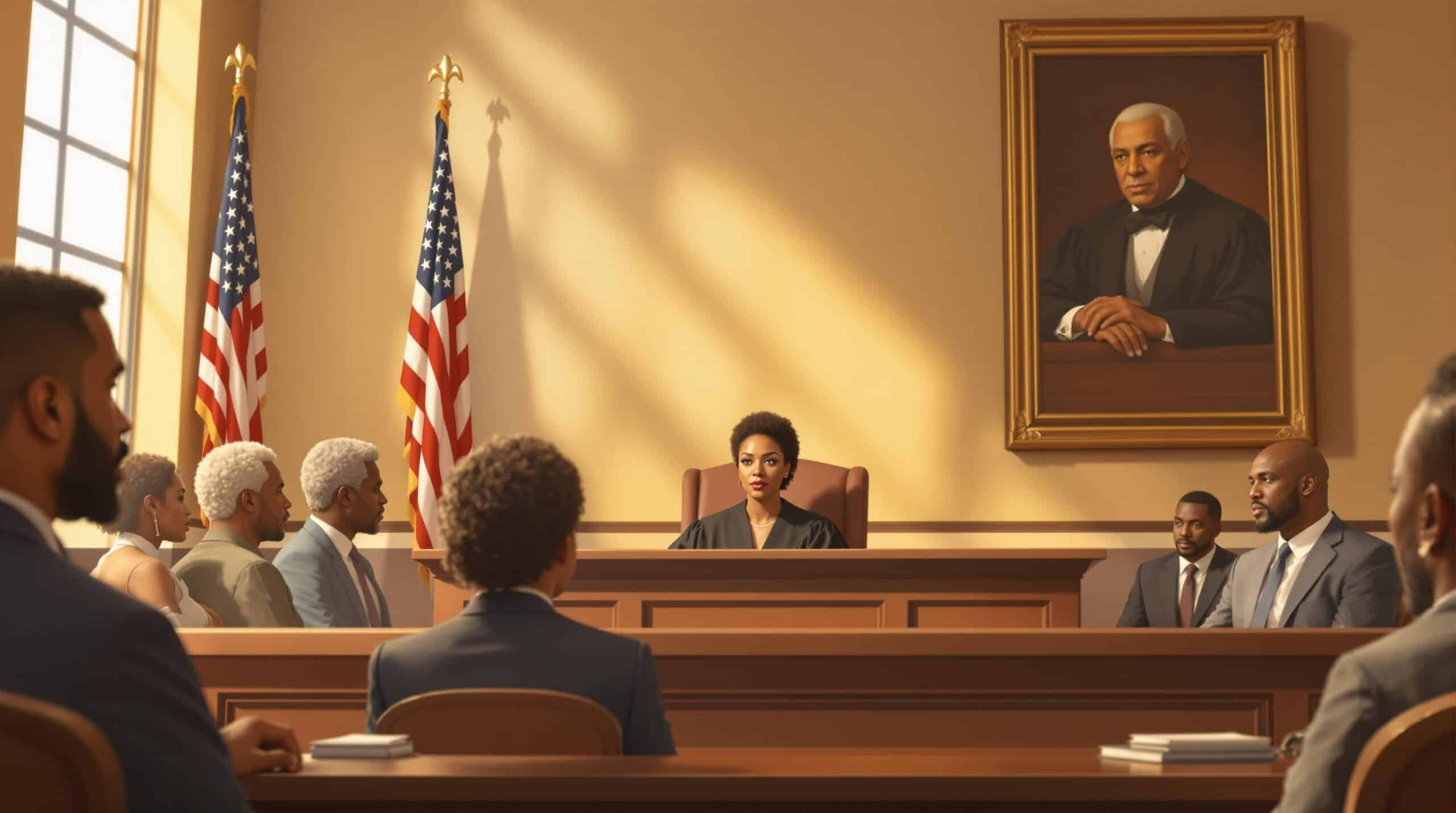Racial bias significantly impacts sentencing in Georgia, especially in death penalty cases. Key findings reveal that Black defendants accused of killing white victims are sentenced to death 22 times more often than Black defendants with Black victims. Prosecutors pursue the death penalty in 70% of cases involving Black defendants and white victims, compared to 15% when both defendant and victim are Black. Additionally, Black individuals often receive longer sentences than white defendants for similar crimes.
Key Points:
- Death Penalty Disparities: Cases with white victims lead to execution 17 times more often than those with Black victims.
- Sentence Length: Black defendants face longer sentences for similar crimes compared to white defendants.
- Judicial Bias: Racial bias influences decisions at multiple stages, including jury selection and appellate reviews.
- Systemic Issues: Georgia lacks a Racial Justice Act, unlike some other states addressing racial disparities.
Quick Comparison of Death Penalty Statistics:
| Defendant/Victim Race | Death Penalty Sought (%) |
|---|---|
| Black defendant/White victim | 70% |
| Black defendant/Black victim | 15% |
| White defendant/Black victim | 19% |
Addressing these disparities requires judicial reform, monitoring prosecutorial decisions, and implementing fair sentencing policies. Without action, systemic inequalities will persist.
Related video from YouTube
Study Results: Racial Gaps in Sentencing
Sentence Length Analysis
Research shows that Black defendants often receive longer sentences than white defendants for similar crimes. For instance, in federal courts, Black males are sentenced to longer prison terms compared to white males for comparable offenses . The gap is particularly striking in certain crime categories. In robbery cases, Black individuals make up 51% of those convicted and are more likely to receive one- to four-year sentences. Meanwhile, white defendants in similar cases more commonly receive one-year sentences .
While these differences in sentence length are troubling, the racial disparities become even more glaring in death penalty cases.
Death Penalty Statistics
The bias is even more evident in cases involving the death penalty. A 2020 study revealed that defendants convicted of killing white victims were executed at a rate of 2.26%, compared to just 0.13% for those convicted of killing Black victims . Prosecution patterns further illustrate this disparity:
| Defendant/Victim Race | Death Penalty Sought |
|---|---|
| Black defendant/White victim | 70% |
| Black defendant/Black victim | 15% |
| White defendant/Black victim | 19% |
Black defendants accused of killing white victims were sentenced to death nearly 22 times more often than Black defendants with Black victims . As Scott Phillips and Justin Marceau pointed out:
"Racial disparity is a recurring and defining feature of each stage of our capital punishment system" .
Judge Decisions and Bias Patterns
Judicial discretion plays a major role in amplifying these disparities. Racial bias influences judicial decisions at multiple stages, and appellate reviews may even exacerbate these inequalities .
Retired Justice John Paul Stevens highlighted this issue, stating:
"That the murder of Black victims is treated as less culpable than the murder of white victims provides a haunting reminder of once-prevalent Southern lynchings" .
These findings show that racial bias in Georgia’s sentencing system is not isolated to individual cases but reflects systemic disparities across various crime types and judicial processes.
sbb-itb-7858f51
Court and Law Responses to Bias
Court Recognition of Bias
Georgia courts have yet to tackle the issue of systemic racial bias in sentencing. While Georgia remains behind on this front, states like North Carolina have started to address these disparities. For example, in the case of Hasson Bacote, the court revealed that prosecutors excluded Black jurors at nearly three times the rate of white jurors. In Johnston County, every Black defendant in a capital trial since 1990 has been sentenced to death .
Ashley Burrell, Senior Counsel at the NAACP Legal Defense Fund, emphasized the importance of these findings:
"Racial discrimination in our courts and criminal legal system has long impacted death penalty sentencing. Today’s ruling affirms what we have argued all along: racism infects the death penalty. We are hopeful that future decisions will result in relief under the RJA for other North Carolinians currently on death row."
These examples highlight the urgent need for legal reforms, a gap that current legislative efforts have yet to fill.
Current Laws and Their Effects
The recognition of racial bias in the legal system has fueled calls for action. However, Georgia still lacks a Racial Justice Act (RJA). Other states have taken steps to address racial disparities through RJA legislation, though the scope and impact of these laws vary:
| State | RJA Status | Key Features |
|---|---|---|
| Kentucky | Active | Focuses on individual case evidence |
| North Carolina | Repealed (2013) | Allowed the use of statistical pattern evidence |
| California | Active | Broad bias review |
| Texas | Proposed | Aims for a system-wide approach |
For instance, Kentucky’s law requires defendants to prove discrimination in their specific case, while North Carolina’s now-repealed law permitted the use of statistical evidence to show broader patterns of bias .
Georgia faces additional systemic challenges, such as:
- Courts prioritizing revenue generation over proper probation oversight
- Limited resources in the legal system, which disproportionately affects low-income defendants
- Resistance from prosecutors to reforms aimed at reducing racial disparities
Henderson Hill, Senior Counsel for the ACLU, pointed out the severity of racial bias in the legal system:
"We have white prosecutors standing in front of overwhelmingly white juries comparing Black defendants facing the death penalty to animals – ‘mad dogs’, ‘hyenas’, ‘predators of the African plain’. The racism in North Carolina’s application of the death penalty is so clear it’s blinding."
The numbers further illustrate the need for change. Federal prosecutors impose mandatory minimum sentences 65% more often on Black defendants than on others . Although Black Americans make up only 14% of the U.S. population, they account for 33% of the prison population and 46% of those serving sentences of 10 years or longer .
Reform Groups and Actions
Georgia Prisoners’ Speak (GPS) Work

Georgia Prisoners’ Speak (GPS), established in 2020, addresses systemic issues within Georgia’s prison system. With over 300 members , GPS provides weekly updates on prison conditions to aid federal investigations.
"We reject strategic indifference and inhumane treatment, which undermine both public safety and the dignity of incarcerated individuals."
Here’s a snapshot of GPS’s key initiatives and their outcomes:
| Initiative | Year | Outcome |
|---|---|---|
| Organized Grievance Campaign | 2020 | Filed 120+ formal complaints |
| Information Sharing Program | 2019–2020 | Delivered critical data to Ignite Justice and They Have No Voice |
| Educational Network | Ongoing | Offers a coding course (300+ subscribers) and a prisoner rights group (200+ participants) |
| Federal Investigation Support | Ongoing | Provides weekly updates on prison conditions |
(Source: )
Public Education Programs
In addition to direct advocacy, GPS focuses on educating the public. The group challenges the Georgia Department of Corrections‘ narratives and has created an underground network to help prisoners understand their legal rights and learn organizing strategies.
Prison reform advocate Aricka Rodriguez highlights GPS’s importance:
"GPS is an essential organization in the fight for prison reform. By amplifying the voices of prisoners, they are able to bring attention to the issues facing those inside the prison system. Most people, including lawmakers, don’t really know what’s going on behind prison walls. As for advocates like me, GPS gives us real information that allows us to better serve them and challenge prison officials."
The need for change becomes clear when looking at the numbers: Georgia imprisons nearly twice as many people per capita as California, despite having a similar crime rate . Additionally, defendants convicted of killing white victims in Georgia are 17 times more likely to face execution than those convicted of killing Black victims .
To address these disparities, GPS has proposed a "Future Crime Prevention Incentive Program." This initiative would reward inmates who demonstrate positive behavior with sentence credits. The program would apply retroactively, excluding those serving life without parole or on death row. Similar approaches in other states have reduced repeat offenses and saved significant costs .
Conclusion
Main Study Points
Research highlights stark racial disparities in Georgia’s sentencing. Cases involving white victims are far more likely to lead to death sentences – up to 4.3 times higher odds, revealing persistent racial bias . As Phillips and Marceau explain:
"The death penalty is racially disparate and simultaneously so rare as to be virtually random – a systematic lottery."
Next Steps
Addressing these disparities requires immediate, evidence-driven changes:
| Reform Area | Specific Actions | Expected Impact |
|---|---|---|
| Judicial Reform | Increase professional diversity on Georgia’s bench | Broader perspectives in decision-making |
| Prosecutorial Changes | Monitor charging decisions for racial bias | Fairer application of mandatory sentences |
| Sentencing Policy | Introduce "second chance" programs and limit extreme sentencing | Reduce racial imprisonment gaps |
| Community Support | Implement violence reduction strategies in Black communities | Tackle root causes of inequality |
Thaddeus Johnson, a criminologist at Georgia State University, stresses the importance of addressing deeper issues:
"We must confront the role of criminal history in sentencing and release policies, because Black people tend to have disproportionate contact with the justice system. The reality is that unless we address historic and structural inequities in Black communities and grapple with the length of prison terms for serious violent crime, disparities will persist."
Achieving equal justice will require ongoing dedication from policymakers, judges, and community leaders.
